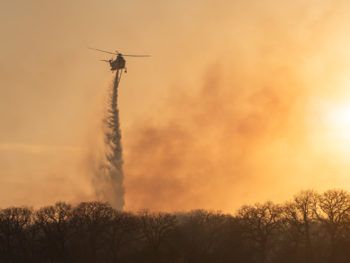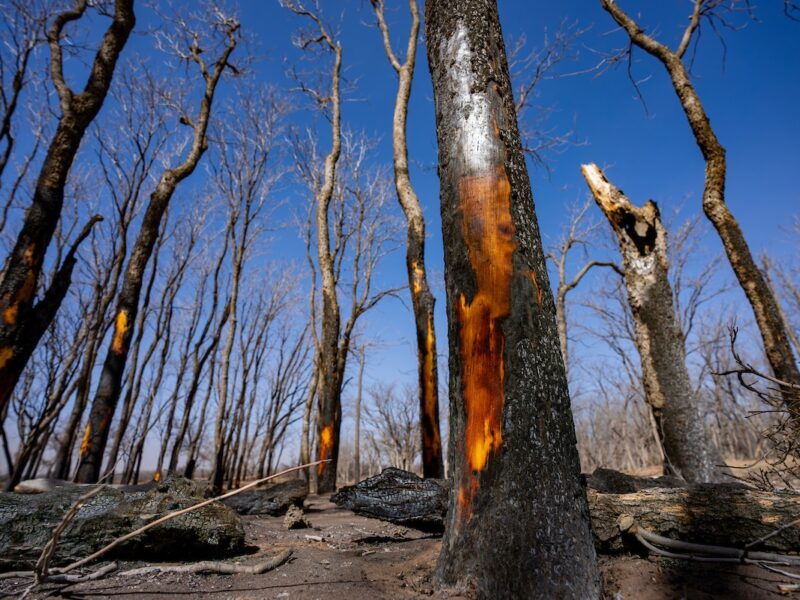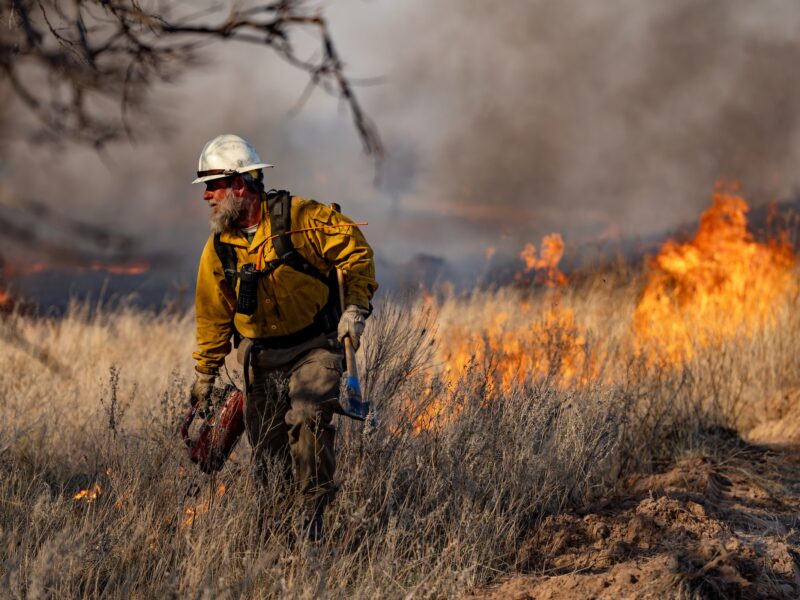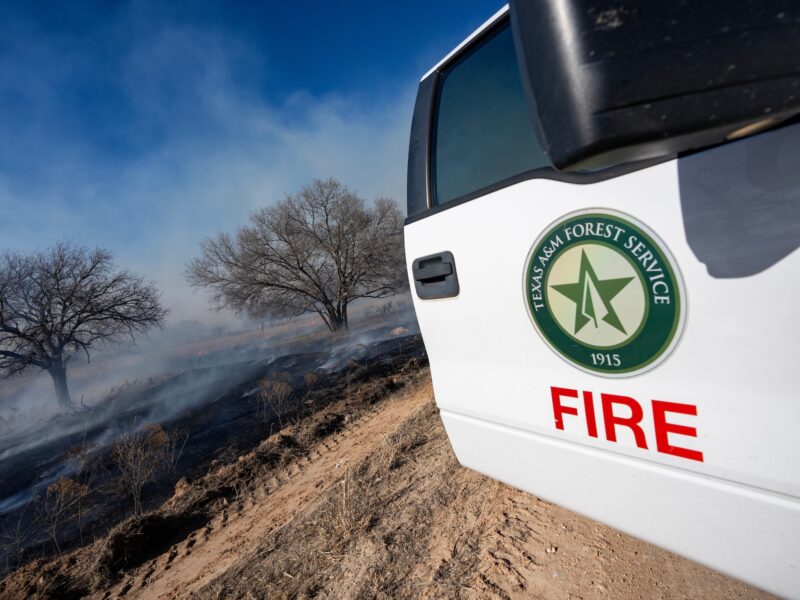Wildfire Potential Continues Across State

There is potential for large wildfires to occur this week that may outpace firefighter suppression efforts in areas near Childress, Lubbock, Abilene, Mineral Wells, Brownwood, Midland, San Angelo, Fredericksburg, Del Rio, Laredo and Brownsville, according to the Texas A&M Forest Service.
Extremely dry vegetation across the landscape will support wildfire activity when exposed to critical fire weather, which includes well-above-normal temperatures and increased wind speeds.
By March 29, the potential for large wildfires will escalate as critical fire weather is expected to develop over a large area of the state west of the Interstate 35 corridor. When these critical-to-extreme weather conditions combine with the extremely dry vegetation across the landscape, there is a possibility that large, significant wildfires will occur and may impact communities.
A Southern Plains Wildfire Outbreak is also possible on March 29 in the High Plains. This weather phenomenon is characterized by extreme fire weather and can be compared to the high-impact Santa Ana wildfire events that occur in southern California.
The fire environment is likely to continue to support increased potential for large wildfires on March 30 for the Hill Country and South Texas.
Many recent wildfires have exhibited extreme fire behavior including group torching, which is the transition of fire from the ground to the canopy of trees, and spotting of embers and flammable material ahead of the active wildfire. An abundance of critically dry vegetation will continue to support wildfire activity as drought conditions intensify across the state.
“As conditions across a large portion of the state worsen, wildfires that ignite are burning more intensely and are frequently resistant to control,” said Wes Moorehead, Texas A&M Forest Service fire chief. “Unfortunately, little to no precipitation is forecast for the immediate future, and we expect the current level of wildfire activity to continue for some time.”
Current Wildfire Updates
This month, state and local resources have responded to 726 wildfires that burned 164,257 acres across the state. Over the past seven days, fire resources responded to 121 wildfires that burned 35,728 acres. These included Crittenburg Complex in Coryell County, which burned an estimated 33,175 acres and is 0% contained; the Eastland Complex in Eastland County, which burned 54,513 acres and is 90% contained; the Das Goat Fire in Medina County, which burned 1,092 acres and is 50% contained; and the Ramsey Fire in Brown County, which burned 3,100 acres and is 65% contained.
The Texas A&M Forest Service is monitoring the current situation closely and has positioned personnel and equipment in the areas of concern.
“State, local and federal firefighters have been extremely busy responding to increased wildfire activity,” said Rich Gray, Texas A&M Forest Service chief regional fire coordinator. “Fire resources are mobilized to areas of concern for a quick and effective response to any requests for assistance.”
Fully staffed task forces and additional suppression equipment are staged in Alice, Amarillo, Beeville, Brownwood, Burkburnett, Childress, Edinburg, Fort Stockton, Fredericksburg, Lubbock, McGregor, Merkel, Mineral Wells, Pleasanton, San Angelo, Smithville and Victoria.
Fireline supervisors, command staff and incident commanders with advanced qualifications are strategically placed across the state to respond. Additionally, resources from 34 states have been mobilized to Texas this month to support wildfire response efforts.
Aircraft were heavily utilized over the past week to support suppression efforts on the ground, responding to multiple wildfires and dropping a total of 263,000 gallons of water and retardant to slow forward progression of fires.
Thirty-five aviation resources are currently staged in state, including three large air tankers, 15 single engine air tankers, five air attack platforms, two aerial supervision modules, three Type 1 helicopters, two Type 3 helicopters, four Blackhawks and one multi-mission aircraft.
Texas A&M Forest Service and Texas Division of Emergency Management also worked together to mobilize 12 strike teams via Texas Intrastate Fire Mutual Aid System to provide wildfire incident support.
Nine out of 10 wildfires in Texas are caused by humans. Texas A&M Forest Service encourages the public to avoid outdoor activities that cause a spark while warm, dry and windy conditions are present.
Stay wildfire aware. If a wildfire is spotted, immediately contact local authorities. A quick response can help save lives and property.
For current conditions and wildfire outlook, read the Texas Fire Potential Outlook https://bit.ly/3kemhbG.
Texas A&M Forest Service does not own any aviation resources but instead uses federal aviation contracts through the U.S. Forest Service and Bureau of Land Management for all firefighting aircraft.
This article by Leighton Chachere originally appeared on AgriLife Today.





